Explore the Best AI Image Gallery

Beyond the Canvas: AI-Generated Media and the Evolving Creative Landscape
The creative landscape is undergoing a profound transformation, fueled by the rapid advancements in artificial intelligence (AI). AI-generated media, encompassing everything from text and images to music and video, is blurring the lines between human and machine creativity, raising both exciting possibilities and complex ethical considerations.
A New Era of Creative Potential
AI algorithms are now capable of producing stunningly realistic and imaginative content, opening up a world of new creative avenues. Artists can leverage AI tools to generate unique visuals, compose original music scores, or even write compelling scripts for films and plays. This democratization of creativity empowers individuals with limited technical expertise to express their ideas in innovative ways.
Applications Across Industries
- Advertising and Marketing: AI-generated content can personalize marketing campaigns, create dynamic visuals, and develop engaging storytelling experiences.
- Entertainment: From generating realistic special effects to creating entire virtual worlds, AI is revolutionizing the entertainment industry.
- Design and Architecture: AI algorithms can assist designers in generating innovative concepts, exploring different design variations, and optimizing building structures.
- Education: AI-powered tools can personalize learning experiences, create interactive simulations, and provide students with real-time feedback.
Navigating the Ethical Landscape
While the potential benefits of AI-generated media are undeniable, it is crucial to address the ethical challenges that arise. Some key concerns include:
- Copyright and Ownership: Who owns the copyright to AI-generated content? The creator of the algorithm, the user who provides input, or the AI itself?
- Bias and Fairness: AI algorithms are trained on vast datasets, which can perpetuate existing societal biases. It is essential to ensure that AI-generated media does not amplify harmful stereotypes or discrimination.
- Misinformation and Deepfakes: The ability to create hyperrealistic fake content raises concerns about the spread of misinformation and the erosion of trust in media.
Shaping the Future of Creativity
The rise of AI-generated media is reshaping the creative industry, demanding a thoughtful and collaborative approach. As we navigate this new landscape, it is essential to:
- Promote transparency and accountability:** Develop clear guidelines and regulations surrounding the use of AI in creative processes.
- Foster human-AI collaboration:** Emphasize the unique strengths of both humans and AI, fostering a symbiotic relationship where they complement each other.
- Educate and empower creators:** Provide training and resources to help individuals understand and utilize AI tools effectively and responsibly.
The future of creativity lies in embracing the transformative power of AI while upholding ethical principles and ensuring that human ingenuity remains at the core of artistic expression. By fostering a dialogue between technologists, artists, ethicists, and policymakers, we can shape a future where AI-generated media enriches our lives and expands the boundaries of human imagination.
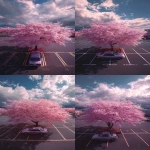

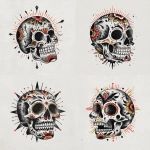
](https://images.ai-img.art/thumbnails/150/024a13ae047c60649b5e7b4f5a71cb7e8a0e8838266fedbd1cb342ac1d2e951c.webp)
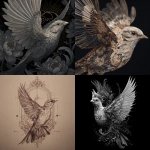
](https://images.ai-img.art/thumbnails/150/5f48fc91b83cfbe17932638af412d0c3a1649ed43692e334aa8cfb9b653153d0.webp)

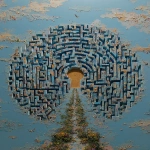


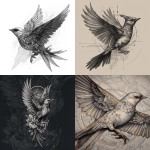

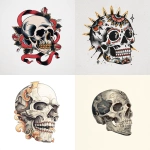


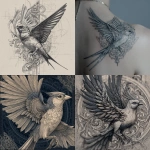
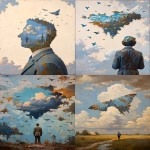
](https://images.ai-img.art/thumbnails/150/6917eea85c775b7876cfba66dfdcae79d6f026ca442f0dfa77824f5af58cfbb0.webp)
](https://images.ai-img.art/thumbnails/150/bc924c2b4ba958c2aabf177b116f47053317904ae6e56b84db3f7dc2d666c080.webp)


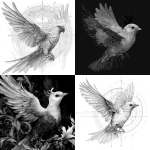



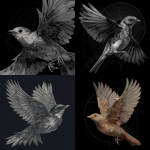
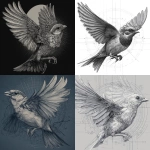




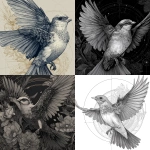

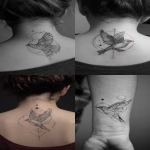






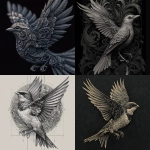
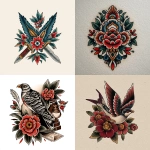
](https://images.ai-img.art/thumbnails/150/815d563985dccec04e21f9a9fa89f09cadc6693be7c6d8ab87defff2b61d417e.webp)
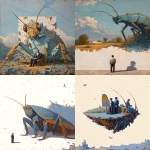
](https://images.ai-img.art/thumbnails/150/4a7a4d6bca6b537f112483b9db13c7dfe541bb35fd8a022bdd131714cc60622a.webp)


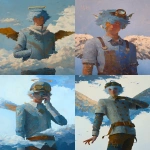
](https://images.ai-img.art/thumbnails/150/3478bd7a5bba66ae70209eef4f2b09837ef09ca033a7511ea86692824661b0a8.webp)
](https://images.ai-img.art/thumbnails/150/a2e728c4e462bef482c106719df04081c360d4444d4d154c22318725b7bcb124.webp)